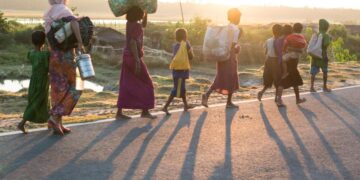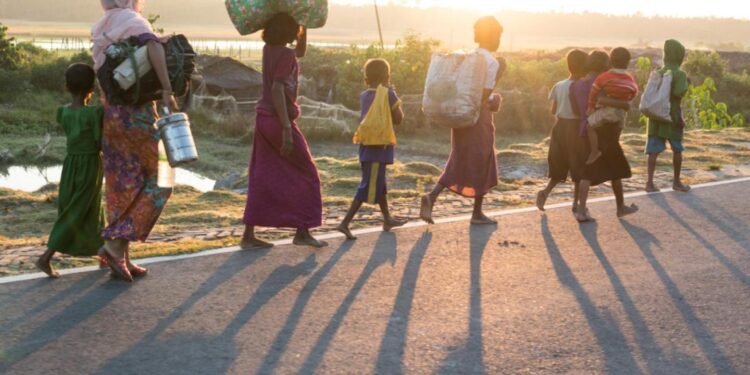By Riches Soberekon
In a newly released report by the United Nations International Children’s Emergency Fund(UNICEF), the impacts of Climate Change on children are brought to the forefront.
The report reveals that between 2016 and 2021, a staggering 20,000 children were displaced every day due to the effects of climate change.
Over the course of these six years, approximately 43 million children were displaced, on average, as a result of storms, floods, fires, and other extreme weather events exacerbated by climate change.
The report also sounds an alarm for the future, warning that even conservative estimates focusing solely on the risks of flooding rivers, cyclonic winds, and floods indicate that an estimated 113 million children could be displaced over the next three decades.
This highlights the urgent need for action to mitigate the impacts of climate change on vulnerable populations, particularly children.
Among the various extreme weather events analyzed in the report, drought emerged as a significant driver of displacement, forcing children to leave their homes at least 1.3 million times during the period covered.
Somalia saw a particularly high number of displacements due to drought, although the report suggests that this figure may be an undercount.
Unlike floods or storms, which allow for some preparation and evacuation, droughts often strike without warning, leaving families with little time to escape.
Floods and storms accounted for the majority of displacements, with 40.9 million children, or 95% of the total, being uprooted by these events. The report highlights that children living in the Horn of Africa and small islands in the Caribbean are especially vulnerable to the impacts of climate change.
These regions often face the compounding challenges of conflict, weak institutions, and poverty, exacerbating the risks faced by children.
The consequences of displacement go beyond the immediate disruption of leaving one’s home. Children who are forced to flee are at heightened risk of being separated from their parents or caregivers, making them vulnerable to exploitation, trafficking, and abuse.
Displacement also disrupts access to essential services such as education and healthcare, further jeopardizing children’s well-being. Adolescent girls face additional threats, including an increased risk of early pregnancy and violence.
UNICEF Executive Director Catherine Russell expressed deep concern over the findings of the report, emphasizing the terrifying experiences children endure when confronted with wildfires, storms, or floods in their communities.
For those who are forced to flee, the fear and uncertainty are compounded. The report underscores the urgent need for concerted efforts to protect and support children in the face of climate change, ensuring their safety, well-being, and future.




































